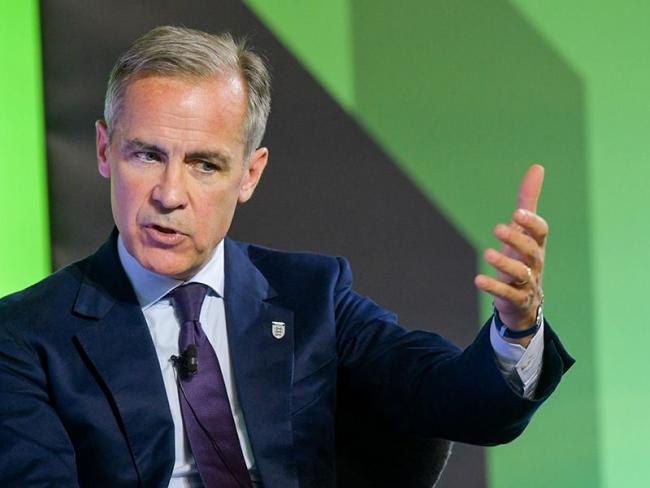(Bloomberg) -- Bank of England Governor Mark Carney welcomed the Brexit deal reached by Prime Minister Boris Johnson this week, saying it could lead to a pick up in economic growth.
Speaking in an interview with Bloomberg Television in Washington on Friday, Carney said the U.K. and European Union reaching a deal is “good news,” as it allows the country to enter a transition period before leaving and avoid a no deal. Investment is likely to recover if the agreement is approved by Parliament, he said.
While that would make monetary policy “a little more interesting,” he added that it doesn’t necessarily mean the BOE would hike interest rates.
“If this is adopted it would remove much of that uncertainty, we would expect a rebound in some of that investment,” Carney said. “It won’t all come back, obviously, because we don’t know the exact nature of the future relationship.”
While global trade tensions will weigh on prospects, he said he hopes that the U.K. could lead the world out of a period of trade uncertainty that started with the Brexit referendum in 2016.
“What should not be an irreducible uncertainty -- but is starting to feel like one -- is trade, and you can’t lean against that, you can’t substitute for it,” Carney said. “The U.K. may have led the world into this, we may be leading the world out of this if this goes through.”
Carney spoke the day before Johnson faces a vote in Parliament on the Brexit agreement he reached this week. although some lawmakers are moving to postpone the decisive decision, forcing the prime minister to seek a further extension.
The comments come after a week in which British central bank officials signaled they have differing outlooks for monetary policy in the event of Britain leaving the EU with a deal in place.
In a Bloomberg interview Thursday Deputy Governor Dave Ramsden said that the central bank’s guidance that a smooth exit from the EU would mean “limited and gradual” interest-rate increases are needed remains valid. Meanwhile his colleague Gertjan Vlieghe said Tuesday that a deal may be enough to stop the need for rate cuts, and signaled the argument for near-term hikes had all but disappeared.
There is no division on the BOE’s Monetary Policy Committee on how to approach a no deal Brexit, Carney said, adding that officials would react to such a scenario in the “normal timeframe.” The BOE’s next policy decision is on Nov. 7, a week after the U.K.’s current exit date of Oct. 31.
Carney, due to leave his post at the end of January 2020, declined to say whether he would delay his departure again if asked. The Canadian, who has twice previously agreed to extend his term to help steer the U.K. economy through Brexit, said the government has plenty of time to chose his successor.
The process of replacing Carney remains “on track,” U.K. Chancellor of the Exchequer Sajid Javid said this week.
